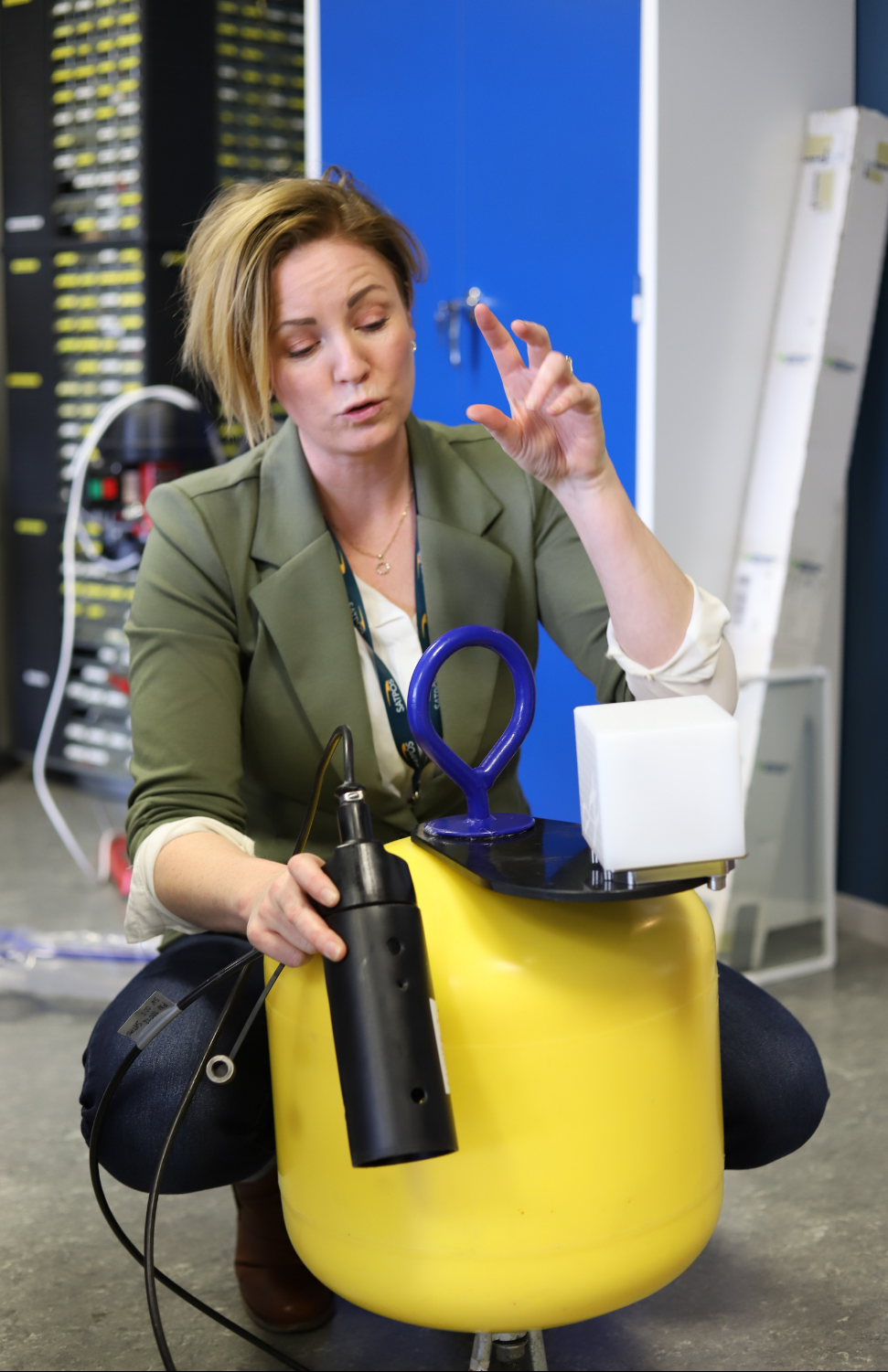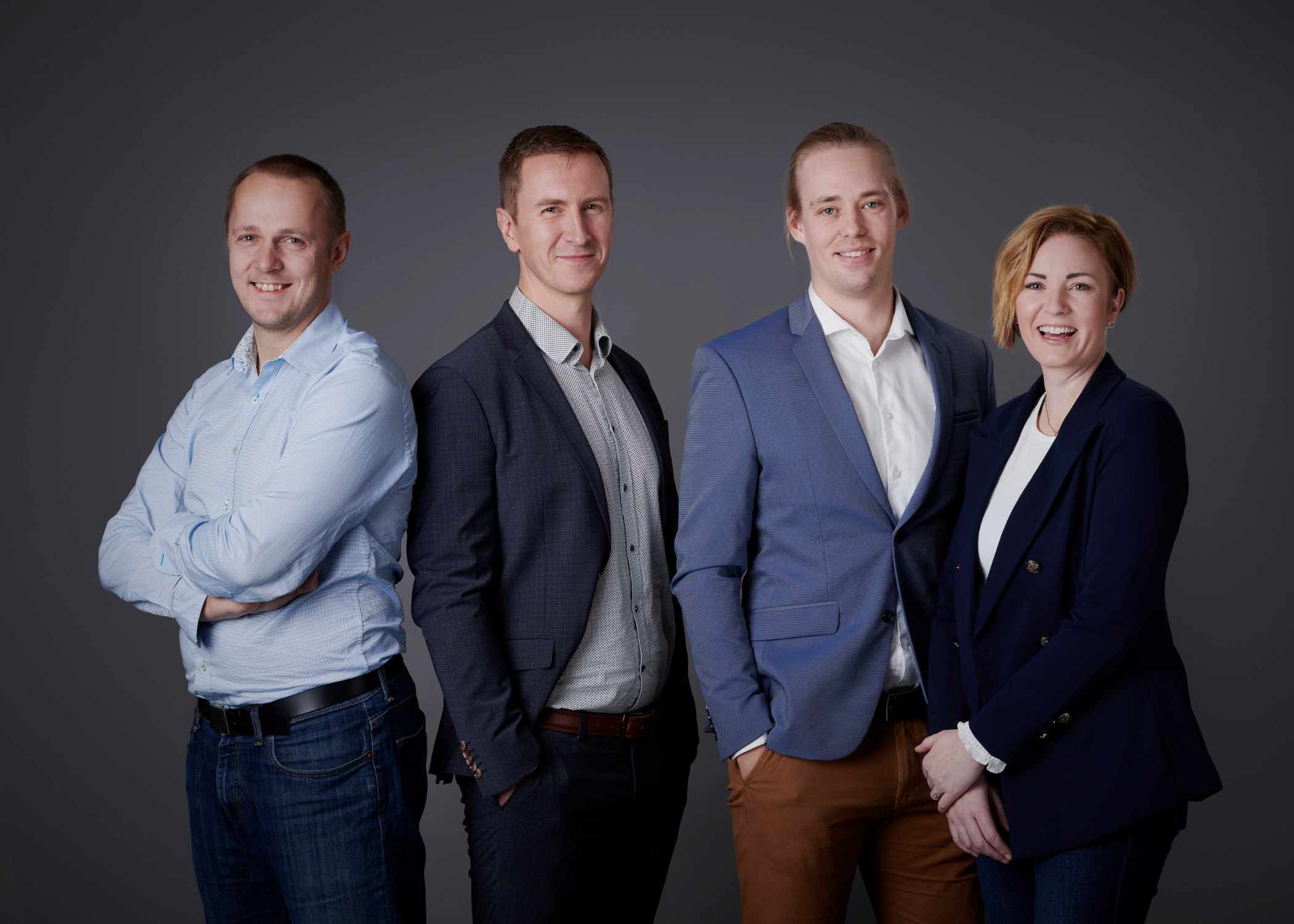A missing buoy was what was needed for a change of pace at SATPOS. They are now focusing on seaweed and kelp, a billion-dollar industry that is currently relatively unknown in Norway.
- We are in a rebranding process where our main focus is now on SATPOS Ocean Sense.
That's what the general manager and founder of SATPOS, Eva Helen Rognskog, says. Ocean Sense is SATPOS's sister company which has developed technology and the insight tool which will now be delivered to its first customer as early as next week.
They will digitize the seaweed and kelp farming industry by creating an insight platform for collecting ocean data.
- What exists today is far too expensive and difficult to understand. It is suggested that you have to be a researcher to understand the data. We want to change that. We want everyone to be able to understand the ocean data so that they can secure their business, she explains.
Betting on seaweed
The company has experience from the oil industry and has previously worked with positioning systems for seismic ships and marine technology.
The potential of seaweed and kelp was something Eva Helen and SATPOS were not aware of until they were contacted by a kelp producer who had lost his buoy.
- I fell completely in love with this. I didn't realize kelp farming was even a market. We took a deep dive into this and realized that seaweed and kelp were a great resource and that there was great potential in this type of marine technology. Combined with our knowledge, we decided to invest in seaweed (seaweed and kelp), she says.
READ ALSO: Seaweed and kelp are our next billion-dollar industry
The insight platform that SATPOS has developed can tell about changes in the structure of the farm, optimization of growing conditions and time for harvesting, reduction of manual work and predictions of changes in the environment that affect quality. They have solved this by placing many reference points in the farm with sensor data that talk together and form a solid profiling of the marine environment, above and below water. Together with 3rd party data, they get an overall overview of the ecological changes in the environment in and around the farm.
- Reducing the carbon footprint with something as simple as not having to use boats that pollute the sea, to go in and out to take water samples and see if the farm is there, is only a small part of the climate gain and cost reduction in operations the customer gets.
The platform makes visible the network the buoys are connected to. In this way, it is possible to receive a notification if there is a change in the pattern and one of the buoys is in motion, such as if a marine animal wades into the net. The user will then receive a notification and can fix it quickly. By using this tool, they will save both time and money, as it can be both time-consuming and expensive to check where the buoys are at all times. Especially offshore.
- We will make the buoys intelligent by putting a sensor on them. We make this sensor ourselves, and should be able to be placed on all possible types of buoys, Eva Helen tells and takes out a buoy to illustrate how it will look.

Eva Helen says the climate aspect around seaweed is very important for SATPOS.
- Through composite data, we enable remote monitoring for validation and monitoring of ecological changes that occur in the sea where the farm is located. This is an important part of becoming aware of negative changes in the climate, but fortunately also the positive changes in the climate during kelp cultivation. Like plants on land, seaweed uses photosynthesis to capture Co2 and grow large, allowing it to absorb carbon up to 50 times faster than a forest. It can provide enormous actual and rapid climate benefits in a short time. Not to mention that seaweed is one of the most nutritious food resources we have. That is precisely why we at SATPOS are cheering for increased use and increased production of seaweed and kelp, says Eva Helen.
The way SATPOS makes the insight platform easier and less expensive than competing products is to simplify functions that are not necessary for the user.
- Most people want a technology that is simple enough, robust and affordable. For most people, it is simple functions such as position that are important. They want an overview. But it will also be possible with more advanced tasks, such as analysis. Then you will get more concrete data that is more research-based, says Eva Helen.
Next step
These days they are working on their first pilot for a customer. This is a project they are doing in collaboration with a Dutch research institute and kelp growers. The aim is to create a standard for scaling up the kelp industry in a safe way, with a focus on climate and sustainability. SATPOS develops the insight software platform, which is an important part of the collection of all data.
- We are also working on finalizing pilots in British Colombia, Indonesia and New Zealand. It is not about the possibilities. The market is waiting, but we have to move at a pace that provides a solid basis for scaling, says Eva Helen.
Therefore, the company must reach out to obtain capital. Eva Helen says it will happen during the turn of the year.
- We need capital to grow and to be able to deliver to everyone who is waiting, she explains.
READ ALSO: There is hardly any next oil
Good competence
- What have you learned from going through such a restructuring process?
- Oh, a lot! We have learned to stay focused on what is important and has value. Move at the right pace - not too fast, but fast enough, Eva Helen tells.
- And not least, we have realized how important it is to have a good team around us who all believe in what we create. We have become a solid team that all have the same values and want this to succeed. I am incredibly proud of our team at SATPOS, the entrepreneur follows up.

SATPOS has 6 employees who are passionate about innovation and technology. That is why they have chosen to establish themselves at Kobben at Forskningsparken.
- It is the space that makes the place so unique. It is the composition with the university and the companies that is based here. We are surrounded by good expertise in all areas, says Eva Helen in conclusion.
